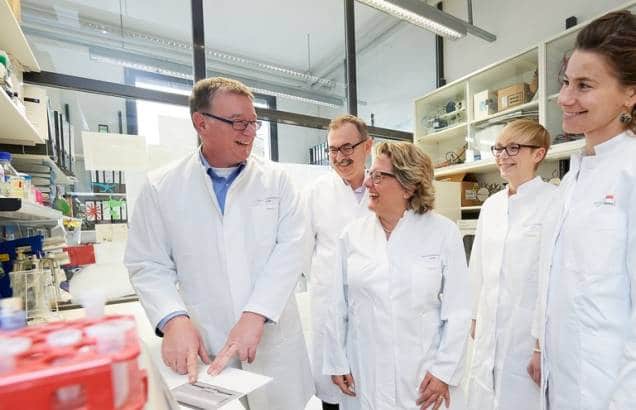Researchers say low doses of tetrahydrocannabinol (THC) have restored cognitive function in old mice; leading them to believe cannabis could reverse some of the brain ageing processes in humans.
In trials carried out by University of Bonn researchers and colleagues at the Hebrew University of Jerusalem, the cognitive abilities of old mice were apparently restored to that of two-month-old mice after ongoing low dosage with THC.
Animals, including humans, create their own cannabinoids called endocannabinoids; production of which declines as we grow old.
“With increasing age, the quantity of the cannabinoids naturally formed in the brain reduces,” says Professor Andreas Zimmer from the Institute of Molecular Psychiatry at the University of Bonn (pictured above, left). “When the activity of the cannabinoid system declines, we find rapid ageing in the brain.”
By “topping up” these lost endocannabinoids with cannabinoids created elsewhere in nature, such as the cannabis plant, some brain function can be restored.
Apparently, the THC treatment given to the mice boosted the number of connections between the nerve cells in the brain. After examining brain tissue and gene activity of the treated mice, the researchers concluded their molecular signature was very similar to that of young ones.
“It looked as though the THC treatment turned back the molecular clock,” stated Professor Zimmer.
The next step is a clinical trial on humans. If it should be successful, cannabis may hold somewhat of a miracle cure for many suffering dementia conditions where memory loss occurs.
With a rapidly ageing population in many countries, dementia is not only tragic, but it will increasingly impact on economies in the years ahead; stretching healthcare services to their limits.
The team’s finding have been published in the journal Nature Medicine.
This isn’t the first time medical cannabis compounds have been investigated for their potential in treating dementia. Last year we reported researchers from Tel-Aviv University’s Abarbanel Mental Health Center found THC could improve the lives of Alzheimer’s patients.
Also last year, we mentioned research indicating tetrahydrocannabinol can promote the removal of a toxic protein associated with Alzheimer’s disease.


